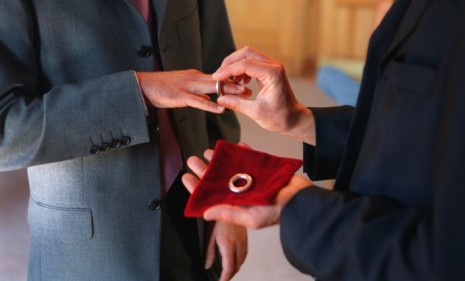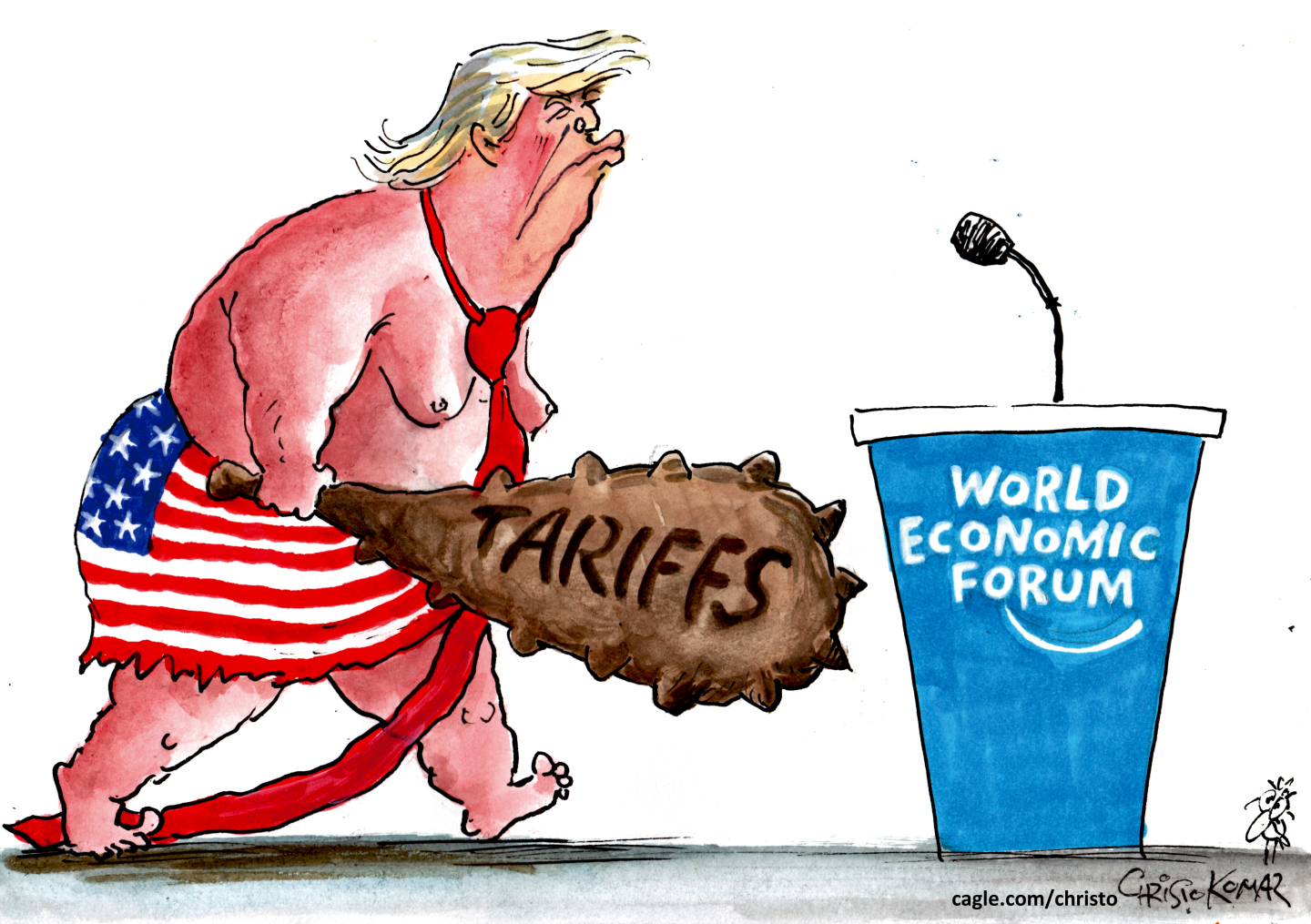DADT repeal: What it means for gay marriage
Now that gays will be allowed to serve openly in the armed forces, are same-sex couples more likely to win the right to wed?

The repeal of the ban on gays in the military has focused renewed attention on another issue that has sharply divided America: Same-sex marriage. Gay rights activists are hoping that the demise of "don't ask, don't tell" will strengthen their case, by allowing them to ask why society trusts gay men and women with rifles but not wedding rings. Will the end of "don't ask, don't tell" add momentum to the push to allow same-sex couples to get married? (Watch an MSNBC discussion about the repeal)
Yes, gay marriage is next: The march toward equality only goes in "one direction," says Adam Serwer in The American Prospect. "Don't ask, don't tell" fell because the notion of "The Gay Menace" no longer has "much political potency" in most of America. "With the possible exception of John McCain," nearly all political conservatives knew they would lose the argument over gays in the military eventually, and most know "they're going to lose the argument on marriage equality" for the same reason.
"The culture war ain't what it used to be"
The Week
Escape your echo chamber. Get the facts behind the news, plus analysis from multiple perspectives.

Sign up for The Week's Free Newsletters
From our morning news briefing to a weekly Good News Newsletter, get the best of The Week delivered directly to your inbox.
From our morning news briefing to a weekly Good News Newsletter, get the best of The Week delivered directly to your inbox.
Not necessarily. The issues are distinct: Marriage is not the same as other matters on the gay agenda, says Maggie Gallagher in National Review. It is "quite possible" to support the repeal of "don't ask, don't tell," or to be "pro-gay rights generally," and "still to support marriage as the union of husband and wife." Most Americans oppose "don't ask, don't tell," but a majority also opposes gay marriage, and this vote didn't change that.
"'What does this mean for the gay marriage debate?'"
The Supreme Court will be weighing in: Gay rights "do seem far more supported/accepted now than they were five or ten years ago," says Chris Good in The Atlantic. But the issue of same-sex marriage won't be decided by the "cultural mainstreaming of gay rights" that helped bring about the repeal of the military's policy. No matter how Congress and the public feel, the Supreme Court will have the final say when it determines the fate of California's Prop. 8, which defined marriage as being between a man and a woman.
"'Don't Ask, Don't Tell' vs. gay marriage"
A free daily email with the biggest news stories of the day – and the best features from TheWeek.com
-
 Ryanair/SpaceX: could Musk really buy the airline?
Ryanair/SpaceX: could Musk really buy the airline?Talking Point Irish budget carrier has become embroiled in unlikely feud with the world’s wealthiest man
-
 Claudette Colvin: teenage activist who paved the way for Rosa Parks
Claudette Colvin: teenage activist who paved the way for Rosa ParksIn The Spotlight Inspired by the example of 19th century abolitionists, 15-year-old Colvin refused to give up her seat on an Alabama bus
-
 5 contentious cartoons about Donald Trump at Davos
5 contentious cartoons about Donald Trump at DavosCartoons Artists take on weaponized tariffs, a cheeky offering, and more
-
 The billionaires’ wealth tax: a catastrophe for California?
The billionaires’ wealth tax: a catastrophe for California?Talking Point Peter Thiel and Larry Page preparing to change state residency
-
 Bari Weiss’ ‘60 Minutes’ scandal is about more than one report
Bari Weiss’ ‘60 Minutes’ scandal is about more than one reportIN THE SPOTLIGHT By blocking an approved segment on a controversial prison holding US deportees in El Salvador, the editor-in-chief of CBS News has become the main story
-
 Has Zohran Mamdani shown the Democrats how to win again?
Has Zohran Mamdani shown the Democrats how to win again?Today’s Big Question New York City mayoral election touted as victory for left-wing populists but moderate centrist wins elsewhere present more complex path for Democratic Party
-
 Millions turn out for anti-Trump ‘No Kings’ rallies
Millions turn out for anti-Trump ‘No Kings’ ralliesSpeed Read An estimated 7 million people participated, 2 million more than at the first ‘No Kings’ protest in June
-
 Ghislaine Maxwell: angling for a Trump pardon
Ghislaine Maxwell: angling for a Trump pardonTalking Point Convicted sex trafficker's testimony could shed new light on president's links to Jeffrey Epstein
-
 The last words and final moments of 40 presidents
The last words and final moments of 40 presidentsThe Explainer Some are eloquent quotes worthy of the holders of the highest office in the nation, and others... aren't
-
 The JFK files: the truth at last?
The JFK files: the truth at last?In The Spotlight More than 64,000 previously classified documents relating the 1963 assassination of John F. Kennedy have been released by the Trump administration
-
 'Seriously, not literally': how should the world take Donald Trump?
'Seriously, not literally': how should the world take Donald Trump?Today's big question White House rhetoric and reality look likely to become increasingly blurred